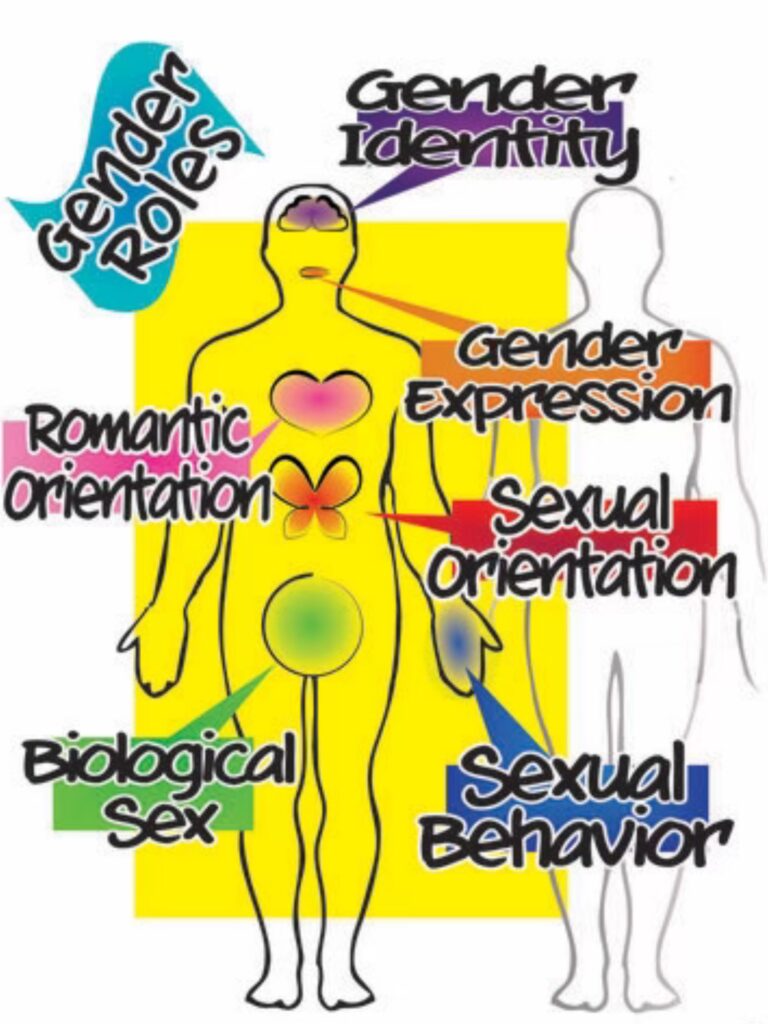
According to a recent study, around 60% of American teenagers have already had sex by the time they graduate high school (Guttmacher Institute, 2020). Many parents delay talking to their kids about sex until they feel their child is “old enough,” but the American Academy of Pediatrics advises parents to “talk about sex early and often,” because children need more than one conversation to reinforce healthy messages about relationships and sexuality. Some avoid talking altogether, making the assumption that their child has learned all they need to know from friends, media, etc. This assumption often leaves children misinformed and unprepared.
(Below is a testimonial video of “More Than Sex Ed”
Sexuality is still very stigmatized in our society, and the basis for shame for so many people. Growing up, kids learn quickly that sex is not something to talk openly about. This is evident in the fact that “the talk” exists at all. Additionally, procreation is merely a sliver of sexuality, and “the talk” often focuses only on intercourse for the purpose of making a baby. To exclude pleasure and LGBTQ+ sex from the conversation, gives the impression to young kids that these aspects of sexuality are particularly shameful, and shouldn’t be talked about. Outdated scare tactics that try to prevent youth from having sex by spreading fear-based (and often inaccurate) information about STIs increase STI shame and stigma. Preaching abstinence before marriage can lead to risky sexual behavior in youth due to a lack of information about safer sex. There are better ways to have this conversation.
More Than Sex-Ed (MTSE) is an LA-based, nonprofit organization dedicated to providing a safe, honest, and inclusive environment to discuss sexuality, gender, relationships, safety, consent, and more, with parents and children alike. MTSE strives to be drastically different from the sex-ed you may have received growing up, which, for many, was awkward, fear-focused, and shame-inducing.
I spoke with Jill Herbertson, MTSE’s Co-Founder and Director of Marketing & Design. Jill states, “Humans are sexual beings from birth to death and human sexuality is diverse and complex. […] What sets [More Than Sex-Ed] apart [from other programs] is our approach: professionally facilitated fact-based, comprehensive, and inclusive conversations.”
MTSE aims to create the inclusive, comprehensive, and sex-positive environment that doesn’t exist in most health classes in public schools. This new and progressive way of looking at sex-ed in no way excludes the risks or negative aspects of sexual behavior. “Our programs address many negative sexual attitudes, behaviors, and consequences in our culture, including homophobia, misogyny, sexual harassment, sexual assault, bullying, gender bias, STIs, and unintended pregnancy,” says Jill. “We recognize that we have to take on challenging discussions about way more than what makes a baby, and how to put on a condom.”
MTSE will continue to offer classes via Zoom for high schoolers this coming spring (2022), and for middle schoolers next fall. Jill says, “Because of the Covid-era need to innovate, we’ve formatted all of our programs for online classrooms. We now have the capacity to reach many more families that previously weren’t able to drive across LA and show up for an in-person class. We are confident that everyone is now familiar with attending Zoom meetings from their own home, something we couldn’t assume two years ago.”
Additionally, beginning in January, 2022, More Than Sex-Ed will be holding three separate, 90-minute, online classes for parents and caregivers:
Social Media/Digital Communication — January 26, 2022, Wednesday from 6:30 – 8:00PM
- The most popular platforms youth are using, and how they can protect themselves online
- What the research really says about screen time, social media, and teen mental health
- Practice discussing responsible technology use
Anti-Racist Parenting — February 9, 2022, Wednesday from 6:30 – 8:00PM
- A quick overview of some global history, and how it impacts persistent inequalities today
- Practice talking to children and youth of different ages about privilege, differences, and calling the police
- Resources for families and educators to expand their antiracism and justice work.
Gender Identity & Inclusivity — March 2, 2022, Wednesday from 6:30 – 8:00PM
- The science and history of sexual identities and gender roles
- Physical and mental health risks associated with gender-based stereotyping for people of all genders
- An overview of gender-affirming health care for trans youth, including social transitioning, puberty blockers, and hormone replacement therapy (HRT)
Sessions are $28 per person, and registration opens on November 1st. Check out https://www.morethansex-ed.org/more-than-the-talk for more info on the upcoming parent/caregiver classes. Visit More Than Sex-Ed’s website to get more acquainted with the organization, and what they have to offer. https://www.morethansex-ed.org/ or feel free to reach out at [email protected].












